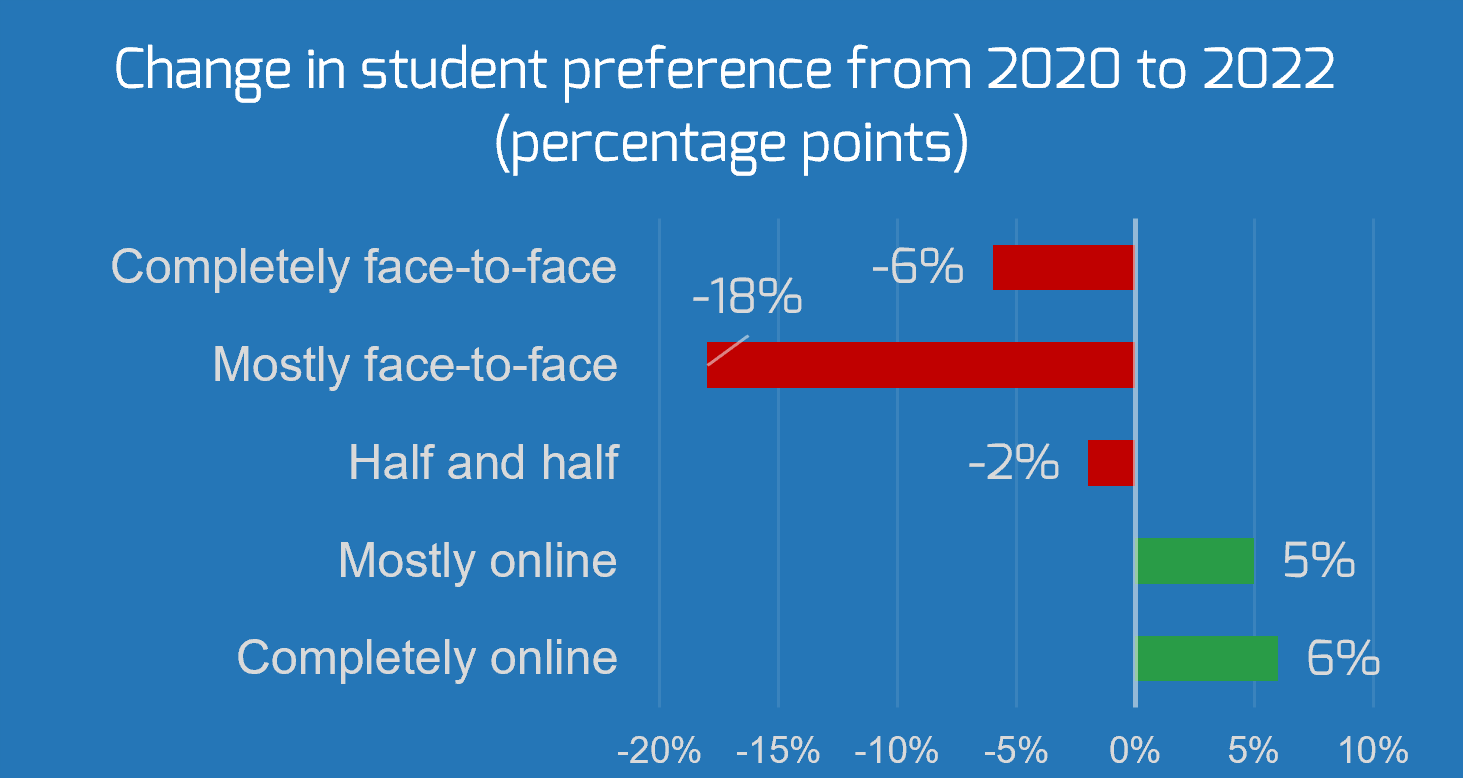Align IT With Institutional Priorities for Student Experience
Focus on data management to support insight and action on student behavior.
- The technology for learning and communication does not meet the students’ expectations.
- The technology for operations is not optimized to support the students’ needs.
- Data management is not mature, with siloed information and poor data governance.
Our Advice
Critical Insight
Institutional priorities for student experience demand effective integration of operations and insightful analytics on student behavior, neither of which can be achieved without strong data management.
Impact and Result
Leverage this research presentation to understand the issues around student experience and what the technology implications are.
- What are the primary concerns of student experience?
- What technology is required to address these concerns?
- Why do student experience initiatives hinge upon strong data management?
Align IT With Institutional Priorities for Student Experience Research & Tools
1. Storyboard – Align IT with institutional priorities for student experience – A research presentation to learn about IT's role in supporting student experience initiatives at colleges and universities.
Leverage this research to develop an approach for IT to support student experience priorities.
This storyboard addresses the five areas of attention to improve student experience.
Align IT with institutional priorities for student experience
Focus on data management to support insight and action on student behavior
Executive Summary
Institutional ChallengeThe focus on improving the student experience is a challenge for colleges and universities because it expands beyond the institution’s historical area of competence:
|
Technology ObstaclesTechnology has an important role to play in improving the student experience. However, the current technology ecosystem of most institutions is not able to meet the challenge:
|
Info-Tech’s ApproachLeverage this research presentation to understand the issues around student experience and what the technology implications are:
|
Info-Tech Insight
Institutional priorities for student experience demand effective integration of operations and insightful analytics on student behavior, neither of which can be achieved without strong data management.
Student experience framework for IT
| The student experience priorities are often highlighted in the mission and vision of the institution. | There are five areas of attention to improve student experience.
 |
Strong data management is required to achieve effective integration of operations and insightful analytics on student behavior. | ||||
Identify student experience priorities |
Improve technology for student engagement |
Improve technology for operations |
Optimize the SIS and CRM |
Develop strong data management practices |
||
Enhancing the instructional experience:
|
This technology directly supports the students’ learning and engagement
|
These systems support operations in the pursuit of improving student experience:
|
The SIS improves student experience through:
|
Data management:
|
||
Enhancing the student learning experience is interwoven with technology
Student preferences are shifting to more online learning.

The chart shows how student preference for different modes of instruction decreased or increased from pre-pandemic to post-pandemic. In general there is a trend away from face-to-face instruction and toward more online modes of instruction. (Source: Educause, 2022 n = 820) |
Modality preferences
|
Faculty experience of teaching with technology differs from students
Faculty need support in the effective use of learning technology

Eighty-seven per cent of educators felt that the quality of their instruction depended on their comfort with the technology. (Source: KPMG, 2022) |
Faculty will need support.
|

About Info-Tech
Info-Tech Research Group is the world’s fastest-growing information technology research and advisory company, proudly serving over 30,000 IT professionals.
We produce unbiased and highly relevant research to help CIOs and IT leaders make strategic, timely, and well-informed decisions. We partner closely with IT teams to provide everything they need, from actionable tools to analyst guidance, ensuring they deliver measurable results for their organizations.
What Is a Blueprint?
A blueprint is designed to be a roadmap, containing a methodology and the tools and templates you need to solve your IT problems.
Each blueprint can be accompanied by a Guided Implementation that provides you access to our world-class analysts to help you get through the project.
Talk to an Analyst
Our analyst calls are focused on helping our members use the research we produce, and our experts will guide you to successful project completion.
Book an Analyst Call on This Topic
You can start as early as tomorrow morning. Our analysts will explain the process during your first call.
Get Advice From a Subject Matter Expert
Each call will focus on explaining the material and helping you to plan your project, interpret and analyze the results of each project step, and set the direction for your next project step.
Unlock Sample ResearchAuthor
Mark Maby
Contributors
- Ken Libutti, Chief Information Officer, Palm Beach State College
- Loretta Early, Executive Counsellor, Info-Tech Research Group
- Mark Roman, Managing Partner, Info-Tech Research Group
- Steve Di Filipo, Senior Executive Advisor, Info-Tech Research Group
Unlock Align IT With Institutional Priorities for Student Experience
Get Instant Access
Our systems detected an issue with your IP. If you think this is an error please submit your concerns via our contact form.
This content is exclusive to members.
Get instant access by signing up!
Our systems detected an issue with your IP. If you think this is an error please submit your concerns via our contact form.
Search Code: 100555
Last Revised: February 14, 2023
Book an Appointment
IT Research & Advisory Services
Our systems detected an issue with your IP. If you think this is an error please submit your concerns via our contact form.
Speak With A Representative
Request Content Access
Our systems detected an issue with your IP. If you think this is an error please submit your concerns via our contact form.




